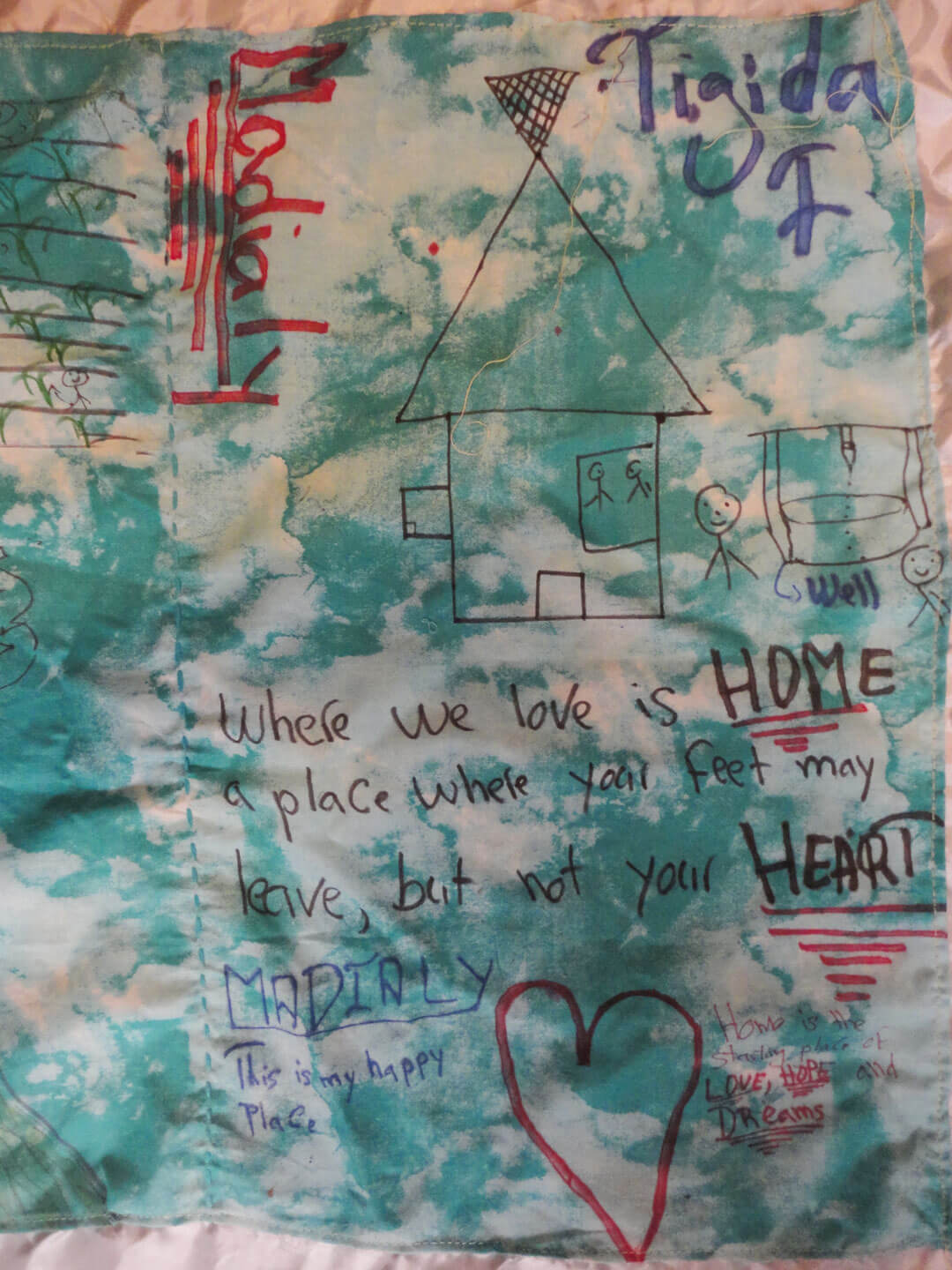THE TRAVELERS BLANKET
Click on image to open the gallery
In the summer of 2016, several IPTAR clinicians began to meet with administrators at the International Rescue Committee to discuss forging a partnership in which IPTAR therapists would provide pro bono services to IRC clients who are refugees resettling in NYC. The first and ongoing activity of the partnership involves IPTAR interns and externs providing individual counseling to IRC clients, often with an interpreter. We were next asked to participate in IRC’s Unaccompanied Minors program, to work with families reintegrating in the US after the children crossed the border from Central America.
In early 2017, following the executive orders banning immigrants from mostly Muslim countries as well as other anti-immigrant rhetoric, the IRC asked us to expand our services to provide emotional support to students in their Saturday Learning Series. On Saturdays during the school year, up to fifty young refugees (ages 4–20) receive one-to-one academic tutoring from volunteer tutors. Several IPTAR members, candidates, and interns have been running short-term groups with these young people.
The support group work has been mostly conducted through the use of art therapy methods. This both helped to bridge the language barriers that would sometimes occur as well as to facilitate a safe environment where complex and often difficult feelings could emerge and be processed through different creative forms of expression.
In the latest set of groups (April/May 2018), we worked on a group project of creating “Traveler’s Blanket.” We invited each of the participants to create a patch that would represent a place that is in some way important for them. It could be a place they are from, a place they traveled to or would like to visit, or even an imaginary place. In a second stage, we sewed the patches together on a large piece of fabric—the traveler’s blanket. In this collective process, the group participants could share their individual experiences of significant real and psychic spaces, but also learn new skills from each other and help one another to make sense of their journeys and build up a feeling of continuity in their lives.
These young people are trying very hard to take responsibility for their futures while struggling to adjust to the new ways and conditions of life and to cope with the trauma of displacement and the uncertainties that refugee life itself carries. This is their way of maintaining a sense of home and security wherever they go, while also accepting friendship whenever they can.
In addition to the artwork itself, some of the group participants shared their thoughts and feelings emerging from this process:
“I want to keep going with my school. I am happy to meet a lot of people at the IRC. I like the moments I pass in SLS1 with my friends and teachers.”
Anonymous
“Express my feelings is important, I am scared sometimes, thinking about people being hurt.”
Gora
“This home is not just a place, it’s the feeling that I get when I belong. Sensing that my life has purpose, knowing that I am needed and Believing that I am loved.”
Tigida F.
“You make your path. You decide your future. You choose your life.”
“Todos pasamos por momentos difíciles. Todos, en algún punto de la vida nos sentimos tristes por alguna razón. Tú no eres la primera, ni la última persona en sentirte así. Solo debes encontrar el camino hacia la salida.”
(Translated: “Everyone passes through difficult moments. We all have sadness in our life at some point for whatever reason. You are not the first, nor the last to feel it. But only you have to find the way out.”)
“Life is struggle but you can make that struggle a great success. Sometimes you will never know the true value of a moment until it becomes a memory. Love and be loved.”
Yanelsi F.
ROOM is entirely dependent upon reader support. Please consider helping ROOM today with a tax-deductible donation. Any amount is deeply appreciated. |






![Genesis, 2024 [Detail]](https://analytic-room.com/wp-content/uploads/2025/07/HQ27-TL20896S_Tau_Lewis__title_TBC__small_figure___2024_6_high_quality-110x80.jpg)